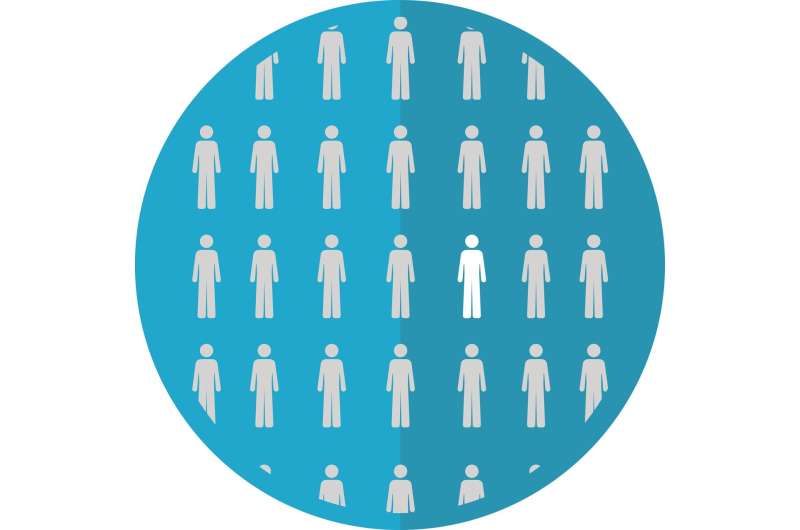This article has been reviewed according to Science X's editorial process and policies. Editors have highlighted the following attributes while ensuring the content's credibility:
fact-checked
trusted source
proofread
Study highlights challenges faced by people living with a rare disease

New research by the Pragmatic Health Ethics Research Unit of the Montreal Clinical Research Institute (IRCM), affiliated with University of Montreal, highlights the colossal challenges faced by people living with one or more rare diseases, both in terms of care and in the personal and professional spheres.
The survey of 90 people living with one or more rare diseases in Quebec reveals a wide range of obstacles faced by people of all ages and genders, from diagnostic wandering to the condescending attitude of health care personnel towards unusual or unfamiliar symptoms, to the feeling of being discriminated against in their careers and misunderstood by those around them.
The article, "Understanding Rare Disease Experiences Through the Concept of Morally Problematic Situations," appeared in HEC Forum on July 29, 2023.
Poor medical follow-up, difficulty in accessing appropriate care, and loss of income due to others' perception of their condition are just some of the obstacles these people report encountering in their daily lives, according to the survey.
Such data confirms what patients living with a rare disease intuitively know: that their lives are complex and fraught with significant pitfalls.
'"These elements highlight the importance of providing better support and tools for people living with one or more rare diseases," commented bioethicist Dr. Ariane Quintal, the first author of this research and a professor at UdeM's Faculty of Medicine.
'"The Quebec government's initiative in adopting its first-ever policy on rare diseases is a source of hope for better care for these patients," added Dr. Eric Racine, Full Research Professor, Université de Montréal and Director of Pragmatic Health Ethics Research Unit at IRCM, which examines crucial issues for citizens at the confluence of health and ethics.
Rare diseases... not so rare
Rare diseases are those that affect less than one person in 2,000. Although each of them affects a limited number of individuals, they are nonetheless numerous. There are between 5,000 and 8,000 worldwide.
Around 80% of rare diseases are genetic, most of them hereditary, e.g. cystic fibrosis, certain types of muscular dystrophy, hemophilia, and so on. Rare diseases also include other types of illness, such as autoimmune, infectious, toxic, malformative and rare cancers. Rare diseases could affect up to 8% of the Quebec population. They affect children, adolescents and adults alike.
IRCM expertise in rare diseases
Rare diseases can cause discomfort, disability and even death. Often little-known, they can be complex to diagnose and treat. For many, there is little or no treatment available.
To meet the needs of these patients, the IRCM has set up the Research Center on Rare and Genetic Disease in adults.
This center is the only place in Canada where the focus is on the transition from pediatric to adult medical care for patients with rare diseases. Thanks to the IRCM's research units, we are able to carry out biomedical research under the same roof, enabling us to better understand a variety of rare diseases with a view to developing new treatments. This combination of medical care and biomedical research is unique and ensures a better understanding of many types of rare diseases.
More information: Ariane Quintal et al, Understanding Rare Disease Experiences Through the Concept of Morally Problematic Situations, HEC Forum (2023). DOI: 10.1007/s10730-023-09511-4




















